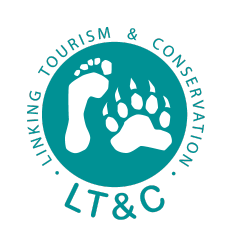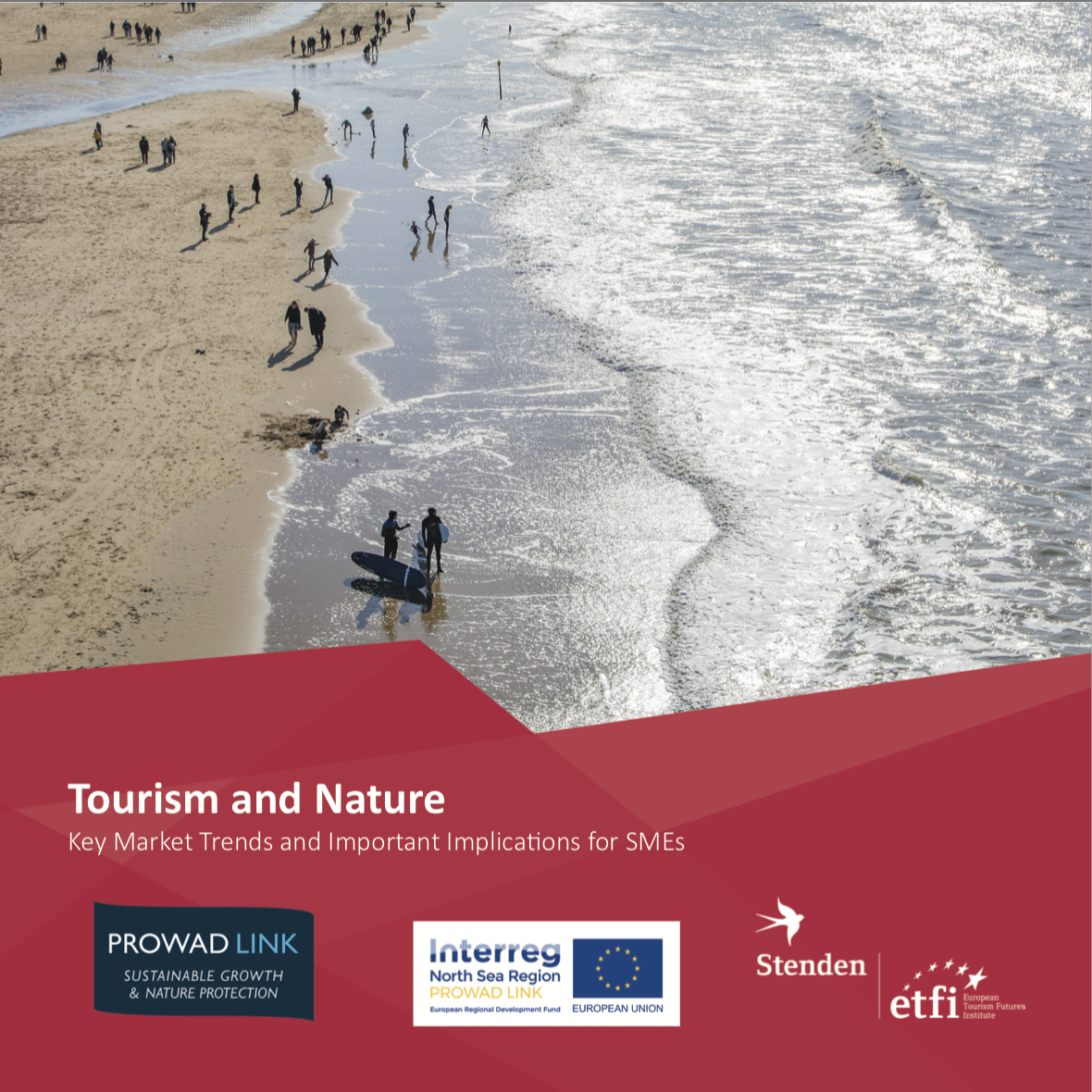“Do not see sustainability as a trick or marketing tool but as an integral part of the business philosophy” is one of many important findings of a new desk study on Tourism and Nature. The report especially focusses on identifying suggestions for small and medium-sized enterprises (SMEs) and was conducted by the European Tourism Futures Institute (ETFI) within the framework of the Interreg project PROWAD LINK. The 14 project partners in Denmark, Germany, the Netherlands, Norway and the United Kingdom working with interested SMEs will use the “nature-business-benefit-cycle” concept to develop new, sustainable products and offers in the pilot regions of the Wadden Sea (DK, D, NL), Geiranger Fjord (NO), Wash & North Norfolk Coast (UK).
For SMEs, the report provides an overview of key trends as well as actionable insights to deal with or anticipate these trends and their implications. Included are hands-on fact sheets on eight special interest topics: cycling tourism, bird watching tourism, kayaking tourism, heritage tourism, walking & hiking tourism, food tourism, fishing tourism, and cold water tourism. The fact sheets and the full report are available for download.
Summary of the Report on Key trends in nature tourism and sustainable travel:
The shift to sustainability.
There is an increasing awareness by many stakeholders such as policymakers, marketing organization, management organizations of (natural) territories as well as amongst visitors and (selected) tourism businesses of the impacts of tourism (e.g. discussion on overtourism, visitor pressure, limits of acceptable change). Sustainability is becoming a ‘standard’ and progressing beyond that as a selection criterion and for places/sites that fully integrate all aspects of sustainability, it can become a reason to travel in itself. As many visitors become more experienced travellers and many news items on the negative impacts of tourism circulate, many visitors become very much aware of the need for sustainability and, in line, many are adapting their decision-making behaviour and onsite travelling behaviour. Visitors are selecting destinations for their attention to sustainability, are willing to actively contribute to these believes and are likewise willing as well as able to positively adjust their spending behaviour. As such, a focus on sustainability offers business opportunities. Moreover, when well- implemented, tourism is able to create value5 beyond merely economic returns and create value for ecosystem preservation, the viability of socio-cultural customs, and an enhanced sense of place and local pride.
The growing demand for meaningful experiences.
For visitors, the quality of experiences is getting more and more decisive. Visitors increasingly search for experiences that matter, i.e. that generate memorable experiences, contribute to their quality of life, or wider (SDG) goals. They are relatively affluent and experienced travellers, which drive their search for quality experiences, uniqueness, authenticity, local culture (including Airbnb), gastronomy but also luxury, convenience, design/architecture and excellent hostmanship/hospitableness. This trend challenges stakeholders to continually enhance the (spatial) quality and experiential value of local tourism products and sites.
The increasing variation in travel motivation (fluid identity of tourists).
Visitors of today trend to have a fluid or hybrid identity: shift and switch from one activity or preference to another. Nature based-tourism could be just one type of tourism or activity that is sought by visitors as a part of or as a stopover in a longer, more diverse journey. For example, combining a city trip with an escape to more rural, natural places. Implications for SMEs are to expand on the multiple reasons- to-travel, to match the fluid identity of tourists and capture the attention are larger groups.



